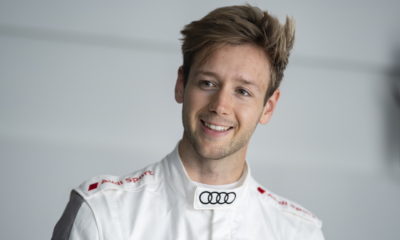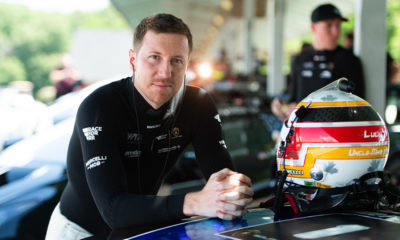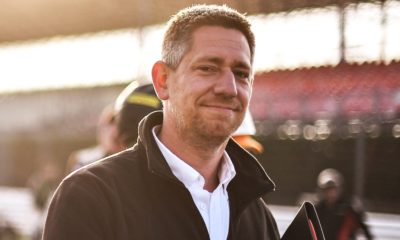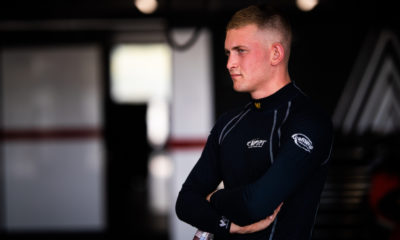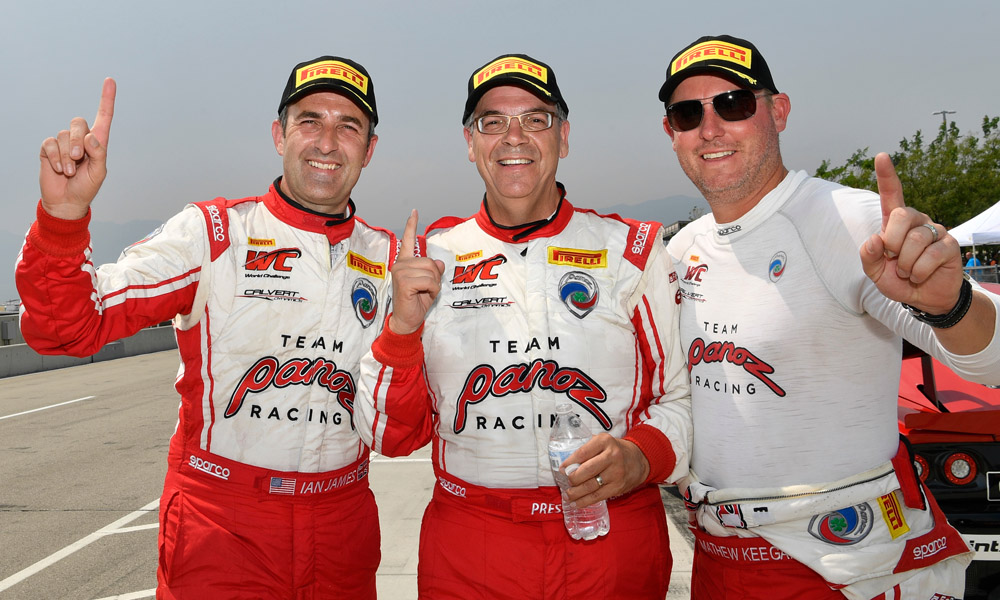
Photo: Brian Cleary/PWC
This week in the Pirelli Paddock Pass, Team Panoz Racing driver Preston Calvert looks back on his 2018 season, his relationship with Dr. Don Panoz, and future of the head injury screening system he helped bring to Pirelli World Challenge.
How would you assess your first season with Panoz Racing?
“I think it exceeded my expectations. The opportunity to run with a team that is staffed with full technicians and mechanics who are always working on a particular family of cars under the same roof is a unique opportunity for an amateur like me.
“This is the same basic group of people that ran the Delta Wing so they are a very high level team. The quality of people and the kind of effort that was involved was amazing.
“The people are wonderful, the team spirit is outstanding, and the car was really a surprise to me in terms of how comfortable I eventually got with it. It’s a joy to drive.”
What stands out to you from your season?
“For me it has to be my first win at Portland which came on a last lap pass. It was one of those things that you remember forever. It was a great thing.
“I had won two races previously with a co-driver in the first season of SprintX and that was very satisfying, but to win something on your own at the professional level, even though I’m in the Am class, it’s heavy competition and it was a very gratifying thing.
“Following that up with a win and a P3 overall at Utah was a great feeling. I was grateful to the team for giving me a car that let me do that.”
What was the significance of helping Panoz win the Manufacturer’s Championship for Don Panoz?
“I think it was awesome. It was one of those things that we couldn’t plan on doing, it just had to gradually come together.
“For this little team from Georgia to put together a run, mostly from Ian [James] and his co-driver Matt Keegan and then my little assistance with a couple of wins, to be able to win the manufacturers’ title beat Porsche, Audi, Ford, and GM, it was an amazing accomplishment.
“For Don, it was a source of pure joy for him that his little team and his little factory had managed to accomplish that. To give him that joy was a great feeling.”
How would you characterize your relationship with Don?
“I would say that I was not friends with Don, but I was acquainted with Don over the last year. I had a few interactions with him that were very positive and stimulating. He was a very interesting person to talk to.
“Before I met him for the first time I spent a some time online learning a lot about his interests and his business ventures. I was prepared to talk to him and we hit it off pretty well right off.
“I first met him at Sonoma in 2017 when it was proposed that I drive with the team, and he said the funniest thing to me at the end which he had probably said to many other drivers.
“It was something to the effect of: I hope we can provide you with a car and a team that is adequate to your talents.
“I thought to myself: Don, let’s get real! I’m a learning Am driver! It was a gracious and nice thing and said with mild irony only. It was very wonderful to hear.
“Through his illness he always wanted to know how fast we were in every session. His greatest joy was us being quick on track.
“I’m sad I didn’t have more time to get to know him and I feel privileged to have had a chance to drive for such a storied team.”
How would you assess the early returns from the head injury screening protocol that you helped implement in PWC this season?
“I proposed that to PWC a year ago and they brought it online with effort from Greg Gill and Marcus Haselgrove.
“The medical team of Rob Thompson, Tracy Sanderson, and Jason Kepka embraced it and brought it into their routine which took some adjustments in how they managed things.
“We screened 200 plus drivers for the series and had a system in place to monitor them in the event of an on-track incident.
“We had a small number of minor head injuries causing concussion during the year, most of which were detectable without any need for the screening instrument to help find it, but we were equipped to detect even very mild concussions, which I think is very reassuring.
“The basic plan is to continue that and to gather those results. The medical team and I are putting those results together with the PWC management group to make sure they know what we’ve accomplished with that and where we need to go.
“I had a meeting with Stephane Ratel where he expressed interest in bringing that same program to additional components of the SRO system over the next year, and I’m forwarding him a plan to do that.
“We’ll roll it out in the Blancpain series around the world gradually and the Intercontinental GT Challenge.
“That’s the plan going forward: bringing that kind of straightforward, sensitive system for detecting head injuries to the entirety of SRO-based sports car racing.”


















